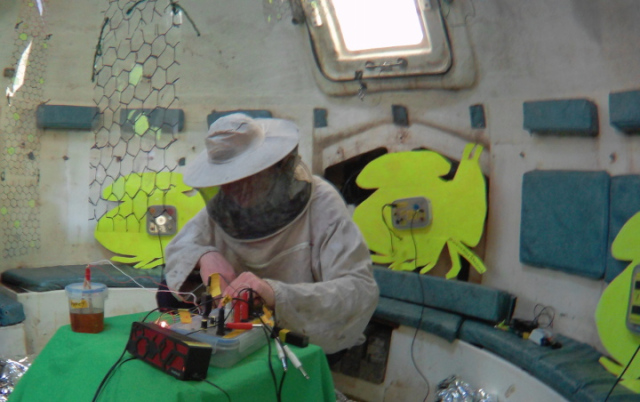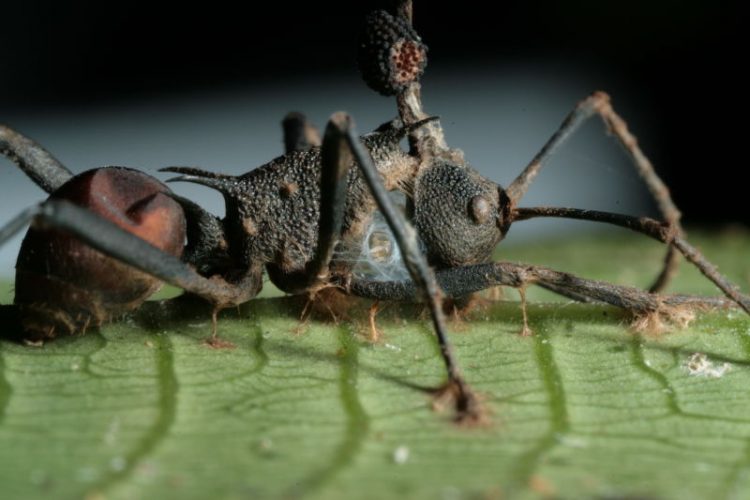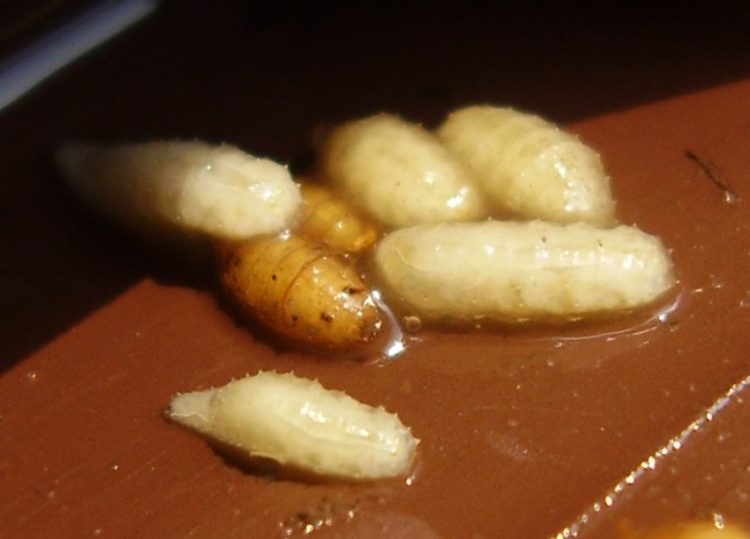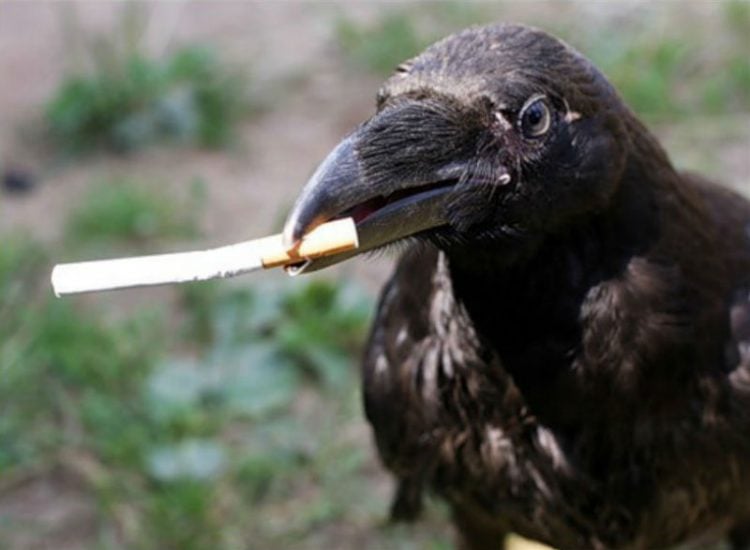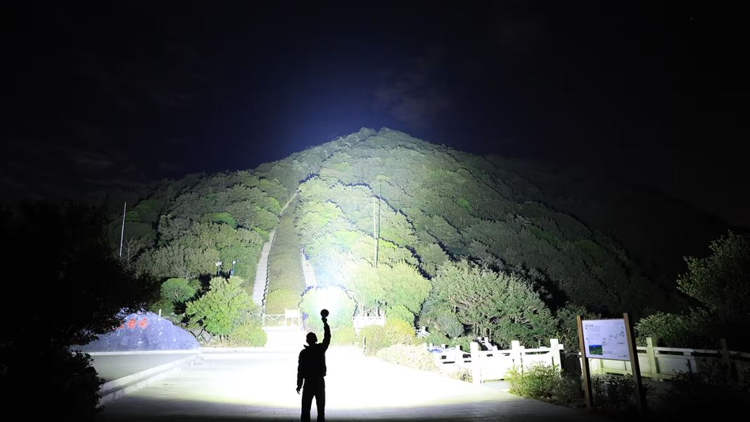British beekeeper and musician Bioni (pronounced BEE-own-ee) Samp has found an incredible way to combine his two greatest passions. He records the frequencies of his bees and uses them to create original electronic musical compositions.
Bioni – a pseudonym, as his real name is a closely guarded secret – produces abstract music that is rhythmic and dancey, but the 50-something Londoner has a higher goal than making people get jiggy with it on the dance floor. He uses his unusual music to raise awareness about colony collapse disorder (CDC), a plague that has wiped out millions of honeybee hives globally since 2006. Billions of bees are killed by CDC every year, and that’s not counting the ones that dies as result of climate change and pesticide poisoning. he feels that by using bees as a musical instrument he can get through to people easier than by preaching to them about the plight of bees and the dangers their extinction poses to humanity.
